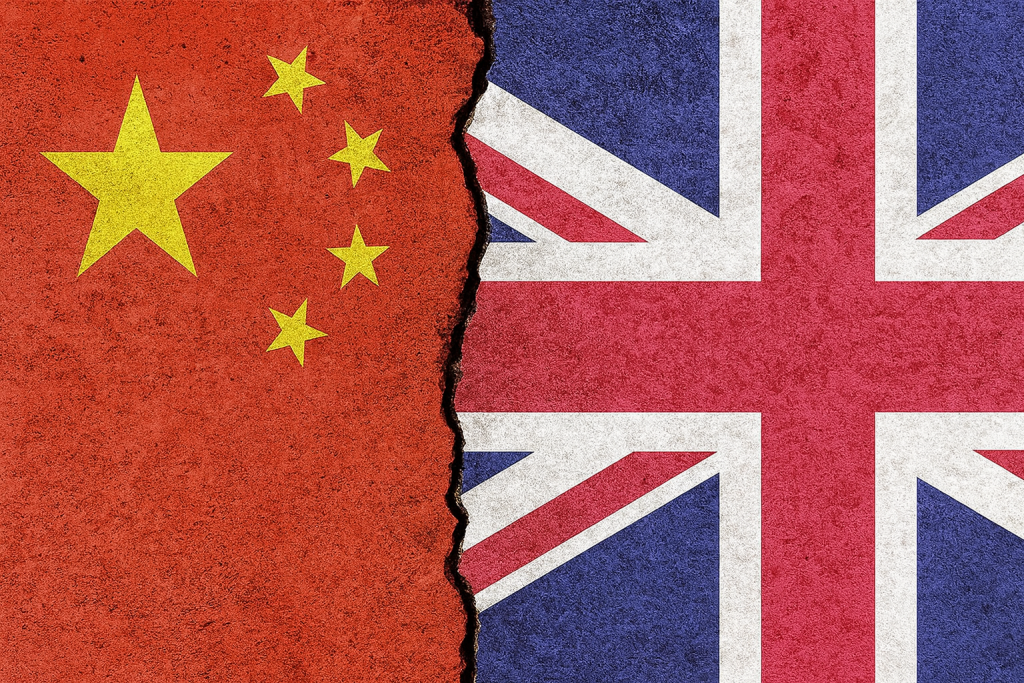
The relationship between the UK and China has hit one of its roughest patches in years. Between the row over a proposed “mega-embassy” in London, a collapsed spy case, and growing worries about cyber threats, there’s a clear sense that trust between the two countries is wearing thin. On the surface these might seem like separate stories, but really they’re all part of the same question: how much should Britain trust Beijing?
China’s plan to build a massive new embassy on the old Royal Mint Court site, near the Tower of London, has become the latest point of tension. If it goes ahead, it would be China’s biggest embassy in Europe – a sign of how much it wants to project its influence abroad. But plenty of people aren’t happy about it. Local residents, security experts, and campaigners have raised concerns about surveillance and the building’s location so close to key parts of the city. Critics say it gives Beijing an unnecessary foothold in central London. China has called these claims “groundless” and warned of consequences if the UK blocks it.
The government has now delayed making a final decision until later this year. Officially it’s down to planning and safety reviews, but most people think politics and national security are the real reasons behind the hold-up. It doesn’t help that public trust in China is already at rock bottom.
That distrust deepened even further when a big espionage case fell apart in court. Two men – one a Westminster researcher, the other an academic – were accused of passing information to China under the Official Secrets Act. Both denied it, and prosecutors eventually said there wasn’t enough evidence to continue. The case’s collapse embarrassed the government and frustrated intelligence officials who had called it a serious national security issue. China, as expected, labelled the charges “smear tactics” and said the UK was being paranoid.
The head of MI5 didn’t hide his frustration either. Speaking after the trial ended, he warned that Britain faces “real and growing threats” from Chinese espionage and that the country can’t afford to become complacent. His warning only added to the sense that Britain was struggling to match words with action – and underlined how strained things have become behind the scenes, even between ministers and their own security services.
For many people, the failed trial summed up Britain’s awkward balancing act: talking tough about Chinese interference while hesitating to act decisively when things get complicated. It made the government look cautious when the public wanted to see a stronger stance – and gave Beijing a chance to see how far the UK would really go in drawing its red lines.
Away from the headlines, another front has opened online. UK security agencies have accused China of targeting government networks, research institutions, and political groups through large-scale cyber attacks. Several Chinese nationals and companies have been sanctioned for alleged hacking – claims Beijing insists are politically motivated. At the same time, the UK has started quietly screening Chinese investment in infrastructure and universities. Officials call it a “risk-based approach”, but in practice it’s a slow, careful move away from dependence.
All of this has created a relationship built more on suspicion than cooperation. Britain still wants to protect trade and investment ties – China is its fourth-largest trading partner – but every new dispute chips away at trust. Beijing accuses London of “politicising normal exchanges” and following Washington’s lead, while London now views almost every deal and meeting through a security lens.
The embassy decision, expected by the end of the year, has become symbolic. It’s not just about planning permission anymore – it’s about whether Britain believes it can deal with China without putting national security at risk. If the UK says no, it risks retaliation. If it says yes, it risks backlash at home.
In the meantime, the cooling relationship is already clear to see. Universities are rethinking research partnerships, Chinese investment has slowed, and the UK is steadily strengthening its cyber defences. It’s not an open conflict, just a cautious pulling back – two sides keeping their distance while still pretending everything is fine.
Final Thoughts:
For preppers, this isn’t just political noise – it’s a reminder of how global tension can quietly work its way to our doorstep. A strained relationship between the UK and China might one day mean higher prices, disrupted imports, or shortages in everyday tech and materials. These changes don’t happen overnight; they creep up through trade shifts and policy moves we barely notice at first. Staying aware of that isn’t about fear – it’s about having the foresight to prepare before those ripple effects start touching our everyday life. When everything’s connected, awareness is preparation – and those who pay attention early are the ones who adapt the fastest.
Resources:
Everything we know about China’s new ‘super-embassy’ – Sky News
Government delays Chinese super-embassy decision again – Sky News
Why did Britain’s case against two alleged Chinese spies collapse? – ABC News
Head of CPS faces cross-party pressure to explain China spy trial collapse – The Guardian
Chinese embassy approval could be unlawful if UK ministers gave advance assurances – The Guardian
MI5 chief says China is a daily threat to Britain’s security – AP News
Cyber-attacks rise by 50% in past year, UK security agency says – The Guardian








